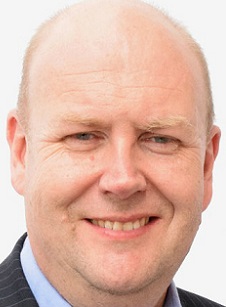A sunny outlook?
May’s welcome sunshine will have got many of us hoping for a long, hot summer. Our last big event before then is the summer conference – or Convergence 2.0 as it’s called. This event is our joint commissioning/provider forum and is to be held at Nottingham University.
It is the second time we’ve bought together our provider and commissioning faculties’ annual conferences, because system working remains the service’s major focus as we face up to current challenges.
The event will also see the launch of a special publication – NHS at 100. This briefing, informed by a roundtable discussion held in May, will think beyond this July’s 70th birthday to imagine what the NHS – and its finance function – will look like in 2048.
If I live that long, I’ll be 82 and the chances are that I’ll be having many more interactions with healthcare services than I do now. Demography, technology, changing lifestyles all present challenges for the service. But there are opportunities too, with a greater focus on prevention, for example, enabling people to be healthy for longer, as well as reducing some of the demand for healthcare services.
Some of the decisions taken now and in the coming years will determine whether any vision of our health service is based on what we would like to see or what we are able to deliver within available resources.
Perhaps the most high-profile uncertainty is around funding, and we are eagerly awaiting further details of what resources might be made available to underpin a new long-term plan for the service. The media is full of speculation, ranging from real-terms increases of anything from 2% to 4%. Last month’s Institute for Fiscal Studies report actually argued that a ‘modernised’ NHS would need any settlement to be frontloaded, leading to even higher increases in the early years.
But the size of the funding pot and its phasing are not the only questions that the NHS needs to address. It also needs to be thinking through how this money flows through the system, getting to the right places in an equitable way, while incentivising integrated care.
This is an issue addressed in new research from PwC, carried out in conjunction with the HFMA and published at the end of May. Changing financial flows will not be a straightforward process, but we need to start thinking about what mechanisms we need in place to drive and underpin sustainable services across the NHS. With its depth of financial expertise – both in the association’s central team and in its practitioner-dominated membership – HFMA is the right organisation to be involved in this work and I am delighted we are playing a part in raising the profile of this key issue.
Looking ahead into the association’s own future, its new qualifications are likely to play a bigger and bigger role. There has been huge interest in our MBA-level and other qualifications, and we see this continuing.
There is a real appetite out there for further qualifications relevant to people’s day-to-day roles and we are excited about these initiatives.
Finally, any senior professionals interested in becoming an HFMA trustee, please contact me at [email protected]
Related content
We are excited to bring you a fun packed Eastern Branch Conference in 2025 over three days.
This event is for those that will benefit from an overview of costing in the NHS or those new to costing and will cover why we cost and the processes.